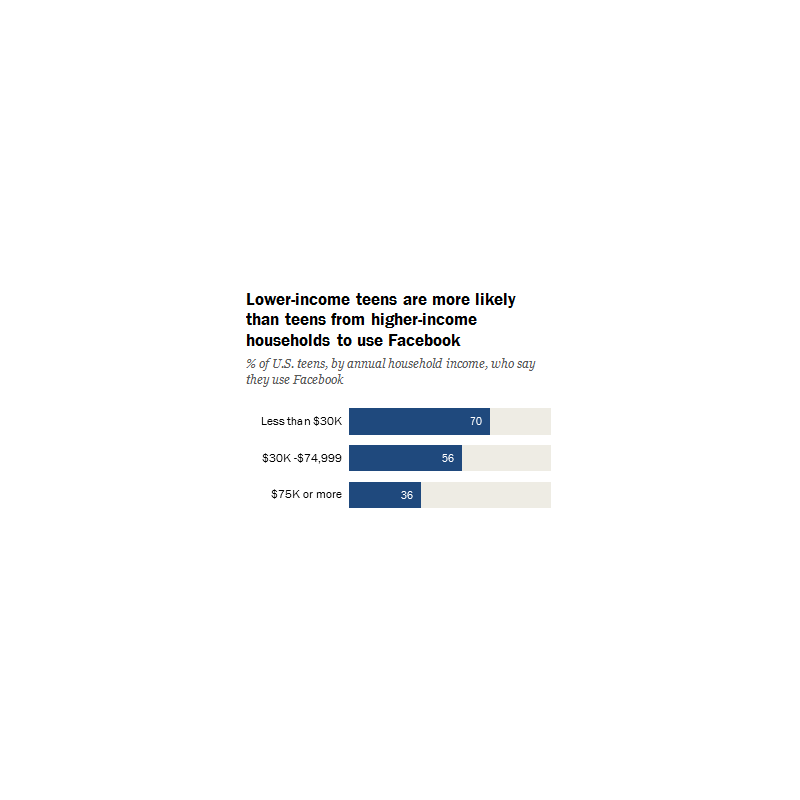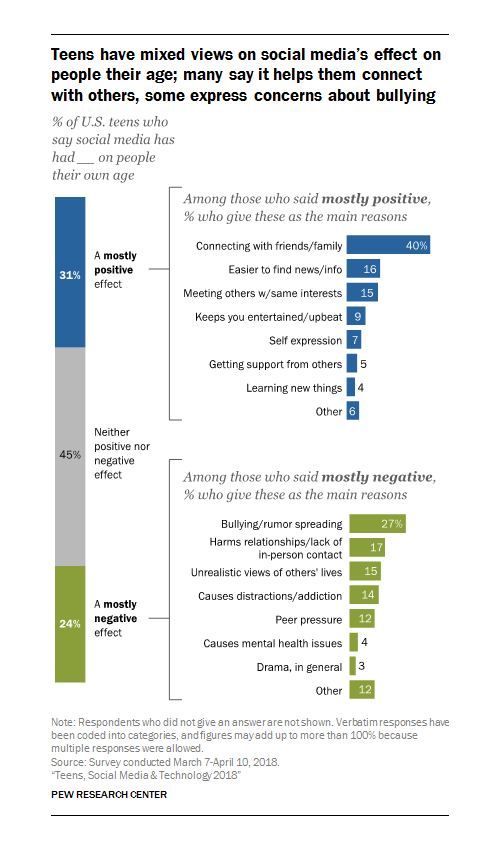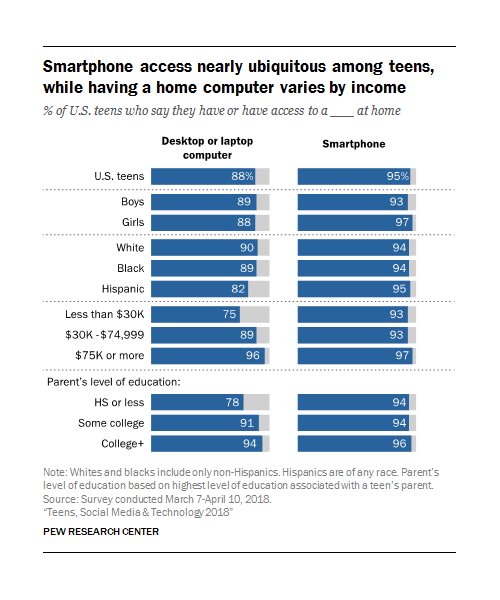
There is no doubt that Facebook is the most influential social platform on the web. But when it comes to its users, there is a digital divide going on.
Facebook has long dominated the social media landscape among the youth in the U.S. and around the world. But according to Pew Research Center, this is no longer the case. In its research earlier in 2018, it concluded that about half (51 percent) of U.S. teens ages 13 to 17 say they use Facebook, notably lower than the shares who use YouTube, Instagram or Snapchat.
Most notably, the study shows that teens abandoning Facebook are those who are notably richer.
36 percent of teens from families making $75,000 or more per year, and 56 percent of teens from families making $30,000-$74,999 range said they used Facebook. But the number significantly rose to a whopping 70 percent when it came to teens in families earning $30,000 or less.
What the research is trying to say is that, a large number of teenagers from families with lower-than-average annual income are still using Facebook.
This further highlights its own research back in 2015 where Facebook was overwhelmingly the social media of choice for teens from both lower- and middle-income families.

The number is not that surprising since Facebook has been losing quite a lot of teens. Those teens that have abandoned Facebook, started preferring Instagram, Snapchat and even YouTube.
This is like a digital divide, which shows the manifestation of inequality with regards to access to digital information.
Usually, when speaking about the digital divide, socioeconomic stability is included into consideration.Those who are more financially stable could purchase devices, where most that aren't couldn't. But the digital divide in Facebook users from different income brackets suggests that socioeconomic stability actually extends even to free sites.
It comes into this conclusion:
Everyone can have access to computers, but not everyone owns personal computers, and not everyone has a smartphone. Those who do own smartphones, not all of them enjoy unlimited data. Instagram and Snapchat are both almost exclusively mobile activities. But with Facebook, users can log in and post whatever they want from any computer they find vacant.
Since the very beginning, Facebook was set up as such that it doesn't have to be used on a private device (smartphones). Facebook started its life when smartphones usage was not yet popular. This is a contrast to Instagram and Snapchat.
So here, Facebook can be more appealing to teens who don't have as much personal ownership of devices and technology.

But Pew is also trying to say that teens from lower-income families don't really favor Facebook over other social media platform.
As a matter of fact, they also use Instagram, Snapchat and YouTube, just as often as their more financially-stable friends do. It’s just that the lower-income teens are more likely to have kept their accounts and actually used them more frequently.
There was also a research that concluded teens teens from lower-income families might have less of a generation gap, and are less likely to abandon a social media just because their parents are using it. They also might have moved around more, or are more likely to be from an immigrant background, which means they have families that aren't with them all the time, and require Facebook as a fundamental way to keep in touch with all family members of all age.
While Pew here has made a clear view of what's going on in Facebook and its younger generation users, there are still other reasons why teenagers from a certain background might be more inclined to stick with Facebook.
There is for example, there is that "cool" factor which makes teens to follow what's common among them. If their friends use it, they will too.